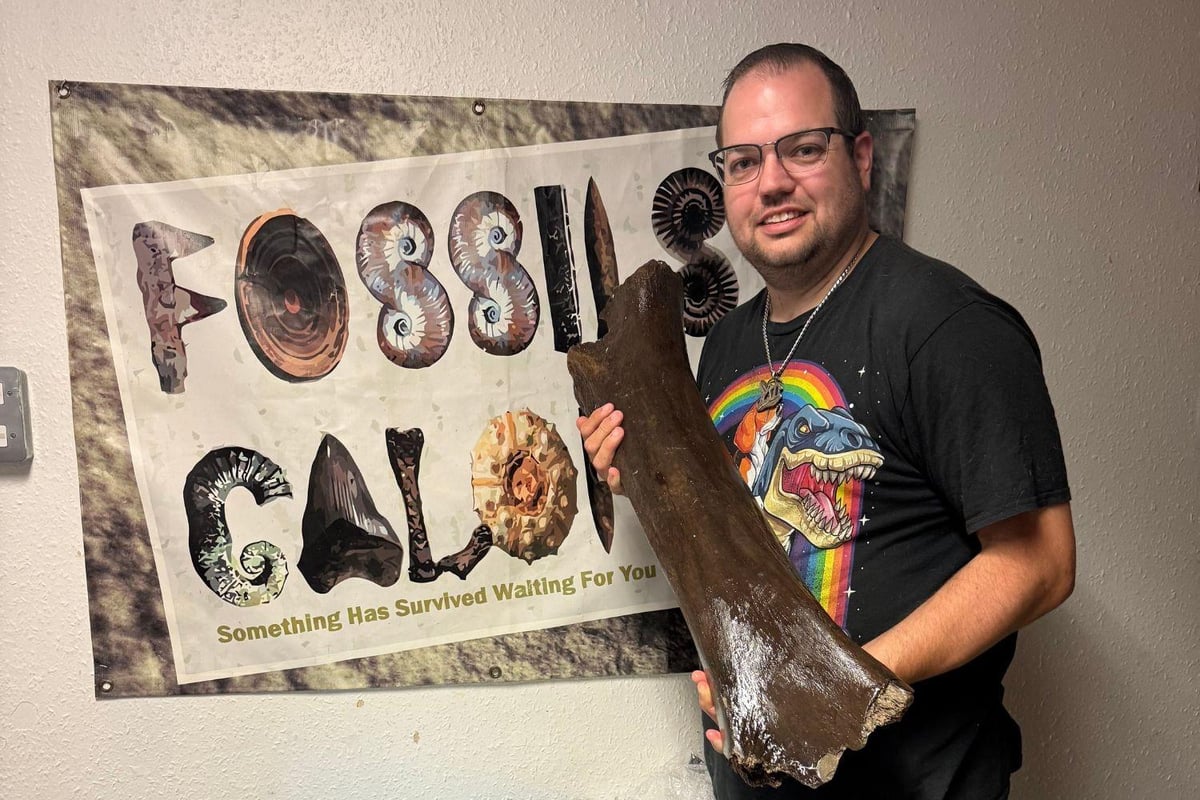Science
Rare 250,000-Year-Old Fossil Bone Discovered in Devon

A palaeontologist from Peterborough is set to examine an exceptionally rare fossilised bone discovered in Devon, England. This bone, estimated to be around 250,000 years old, has attracted attention due to its historical significance and the valuable insights it may provide into prehistoric life in the region.
The fossil was unearthed during a routine excavation along the coast of the English Channel. Experts classify it as a remarkable find, shedding light on the diverse fauna that once roamed the area. The palaeontologist, whose identity has not been disclosed, plans to conduct detailed analyses to determine the bone’s origin and characteristics.
Significance of the Discovery
This fossil could contribute significantly to our understanding of the environmental conditions during the time it existed. The English Channel has a rich geological history that has preserved numerous remnants of ancient species. The examination of this bone may reveal crucial information about the ecosystem and climate of that era.
Fossils from this period are incredibly rare, making this discovery particularly exciting for scientists. The potential findings could inform current research on evolutionary processes and species adaptation to changing environments.
Next Steps in Research
The palaeontologist will employ a variety of techniques to analyse the fossil. These methods may include radiographic imaging and isotopic analysis, which can provide insights into the bone’s age and the conditions under which it was formed. Once the examination is complete, the findings will be shared with the scientific community.
This discovery not only highlights the importance of ongoing archaeological work but also underscores the need for meticulous preservation of such finds. As researchers continue to explore the Devon coastline, they hope to uncover more remnants that can enhance our understanding of the ancient world.
In conclusion, the examination of this 250,000-year-old bone could mark a significant milestone in palaeontology. It emphasizes the continuous quest for knowledge about our planet’s history and the life forms that once inhabited it. As the research progresses, the scientific community eagerly awaits the insights that will emerge from this extraordinary find.
-

 Health3 months ago
Health3 months agoNeurologist Warns Excessive Use of Supplements Can Harm Brain
-

 Health3 months ago
Health3 months agoFiona Phillips’ Husband Shares Heartfelt Update on Her Alzheimer’s Journey
-

 Science2 months ago
Science2 months agoBrian Cox Addresses Claims of Alien Probe in 3I/ATLAS Discovery
-

 Science2 months ago
Science2 months agoNASA Investigates Unusual Comet 3I/ATLAS; New Findings Emerge
-

 Science1 month ago
Science1 month agoScientists Examine 3I/ATLAS: Alien Artifact or Cosmic Oddity?
-

 Entertainment5 months ago
Entertainment5 months agoKerry Katona Discusses Future Baby Plans and Brian McFadden’s Wedding
-

 Science1 month ago
Science1 month agoNASA Investigates Speedy Object 3I/ATLAS, Sparking Speculation
-

 Entertainment4 months ago
Entertainment4 months agoEmmerdale Faces Tension as Dylan and April’s Lives Hang in the Balance
-

 World3 months ago
World3 months agoCole Palmer’s Cryptic Message to Kobbie Mainoo Following Loan Talks
-

 Science1 month ago
Science1 month agoNASA Scientists Explore Origins of 3I/ATLAS, a Fast-Moving Visitor
-

 Entertainment2 months ago
Entertainment2 months agoLewis Cope Addresses Accusations of Dance Training Advantage
-

 Entertainment3 months ago
Entertainment3 months agoMajor Cast Changes at Coronation Street: Exits and Returns in 2025









